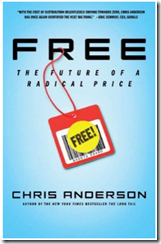Friday, July 31, 2009
Thursday, July 30, 2009
Wednesday, July 29, 2009
Nicholson Baker on The Kindle & eBooks
“Here’s what you buy when you buy a Kindle book. You buy the right to display a grouping of words in front of your eyes for your private use with the aid of an electronic display device approved by Amazon.”
“Then, out of a sense of duty, I forced myself to read the book on the physical Kindle 2. It was like going from a Mini Cooper to a white 1982 Impala with blown shocks.”
Read the full article in The New Yorker.
Labels: ebooks
Tuesday, July 28, 2009
Tuesday, July 21, 2009
Just because you're paranoid, it doesn't mean they aren't out to get you
Last summer I got a new passport in preparation for my trip to Jamaica. Embedded in that new passport was an RFID chip containing an unspecified amount of data about me and my passport. I'm not a total paranoid freak but I'd read a bit about RFID and how easy it is for unauthorized people to read their contents. So, I'd purchased a passport jacket that contains mesh that will prevent just such a thing from happening. A few folks I know had looked at me with that "you're a little off, aren't you?" look when I explained the heavy-duty envelope for my passport. Well, not the US State Department is recommending that folks purchase such a jacket since a recent report has pointed out how easily they are read. Don't worry though. According to the State Department "hackers won't find any practical use for data skimmed from RFID chips" but who am I to trust them now? Of course, you could always disable the chip but that wouldn't exactly be legal.
Wednesday, July 15, 2009
Tuesday, July 14, 2009
CIL 2010 CFP
![]() Information Fluency: Literacy for Life
Information Fluency: Literacy for Life
Information fluency goes beyond literacy (the ability to read and write), information literacy (the ability to find, evaluate and use information), media literacy (the ability to access, analyze, evaluate, and create messages in a variety of forms), and digital literacy (the ability to use digital technology, communication tools or networks to locate, evaluate, use and create information). It extends to other types of literacy necessary to grow, learn and live – cultural literacy, global literacy, news literacy, scientific literacy, economic literacy, social literacy, health literacy, multimedia literacy, computer literacy, social online literacy, and more. Information, and fluency with it, permeates every part of our lives. Developing skills to become fluent with information is the key to our success individually as well as in groups, teams and communities.
The deadline for speaker submissions is 15 September 2009.
Labels: cil2010
Friday, July 10, 2009
Free for Free
 Chris Anderson’s new title Free can of course be purchased at Amazon but is also available for free online reading via Scribd. Even better the unabridged audio version is also available completely for free download.
Chris Anderson’s new title Free can of course be purchased at Amazon but is also available for free online reading via Scribd. Even better the unabridged audio version is also available completely for free download.
From Amazon:
The New York Times bestselling author heralds the future of business in Free.
In his revolutionary bestseller, The Long Tail, Chris Anderson demonstrated how the online marketplace creates niche markets, allowing products and consumers to connect in a way that has never been possible before. Now, in Free, he makes the compelling case that in many instances businesses can profit more from giving things away than they can by charging for them. Far more than a promotional gimmick, Free is a business strategy that may well be essential to a company's survival.
The costs associated with the growing online economy are trending toward zero at an incredible rate. Never in the course of human history have the primary inputs to an industrial economy fallen in price so fast and for so long. Just think that in 1961, a single transistor cost $10; now Intel's latest chip has two billion transistors and sells for $300 (or 0.000015 cents per transistor--effectively too cheap to price). The traditional economics of scarcity just don't apply to bandwidth, processing power, and hard-drive storage.
Yet this is just one engine behind the new Free, a reality that goes beyond a marketing gimmick or a cross-subsidy. Anderson also points to the growth of the reputation economy; explains different models for unleashing the power of Free; and shows how to compete when your competitors are giving away what you're trying to sell.
In Free, Chris Anderson explores this radical idea for the new global economy and demonstrates how this revolutionary price can be harnessed for the benefit of consumers and businesses alike.




